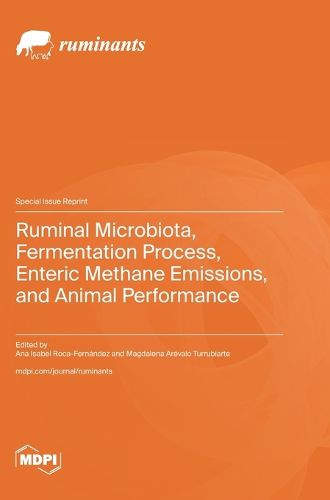Readings Newsletter
Become a Readings Member to make your shopping experience even easier.
Sign in or sign up for free!
You’re not far away from qualifying for FREE standard shipping within Australia
You’ve qualified for FREE standard shipping within Australia
The cart is loading…






This title is printed to order. This book may have been self-published. If so, we cannot guarantee the quality of the content. In the main most books will have gone through the editing process however some may not. We therefore suggest that you be aware of this before ordering this book. If in doubt check either the author or publisher’s details as we are unable to accept any returns unless they are faulty. Please contact us if you have any questions.
This Special Issue aims to provide knowledge about the influence of ruminal microbiota on the fermentation process, enteric methane emissions, and animal performance from ruminants. This will help us to understand how the use of feed additives and/or plant secondary metabolites in ruminant diets may be an interesting feeding strategy to modify the rumen function of animals by altering nutrient digestion pathways, changing the ruminal fermentation process, inhibiting methanogenesis, modulating microbial populations, adjusting the biohydrogenation of fatty acids, and reducing the risk of metabolic diseases, thus improving ruminant productivity and health.
$9.00 standard shipping within Australia
FREE standard shipping within Australia for orders over $100.00
Express & International shipping calculated at checkout
This title is printed to order. This book may have been self-published. If so, we cannot guarantee the quality of the content. In the main most books will have gone through the editing process however some may not. We therefore suggest that you be aware of this before ordering this book. If in doubt check either the author or publisher’s details as we are unable to accept any returns unless they are faulty. Please contact us if you have any questions.
This Special Issue aims to provide knowledge about the influence of ruminal microbiota on the fermentation process, enteric methane emissions, and animal performance from ruminants. This will help us to understand how the use of feed additives and/or plant secondary metabolites in ruminant diets may be an interesting feeding strategy to modify the rumen function of animals by altering nutrient digestion pathways, changing the ruminal fermentation process, inhibiting methanogenesis, modulating microbial populations, adjusting the biohydrogenation of fatty acids, and reducing the risk of metabolic diseases, thus improving ruminant productivity and health.